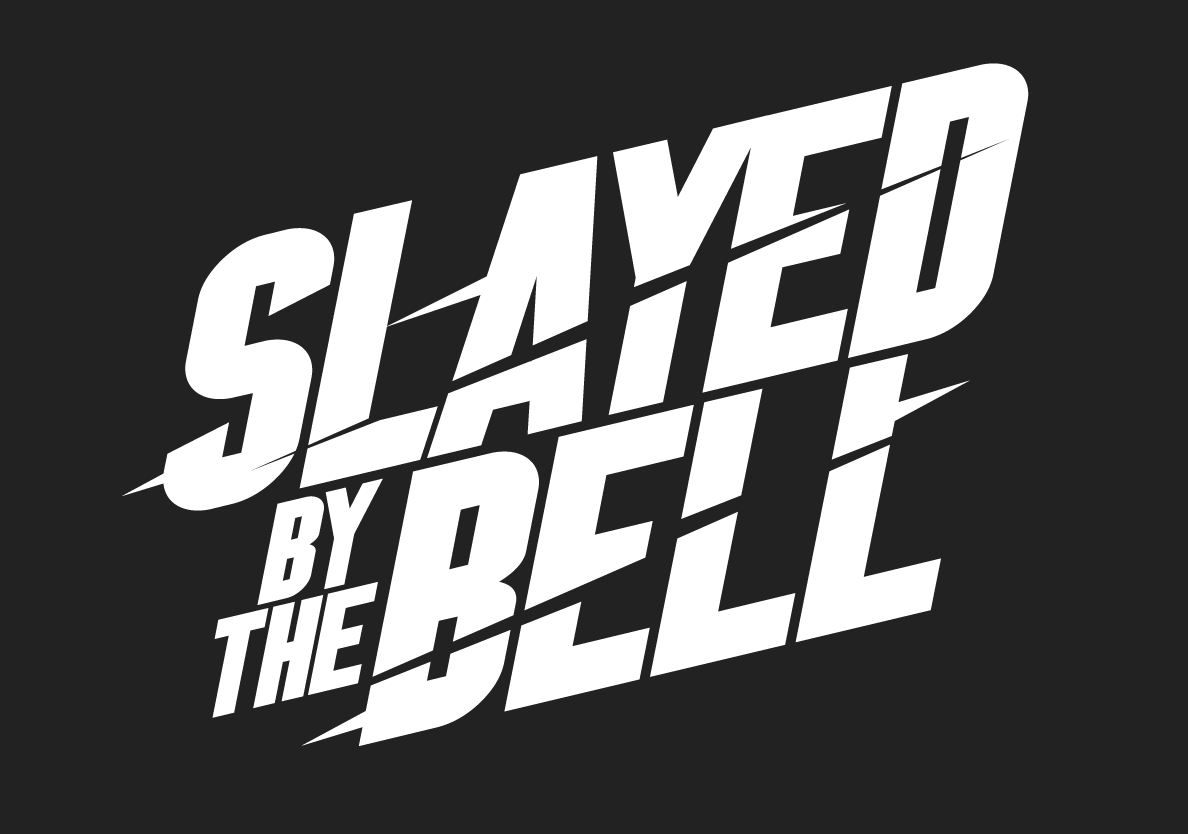We’re constantly being sold the narrative that innovation will save education. New tech. New metrics. New training. The Emporer’s new fucking clothes. But what no one wants to admit is that education doesn’t need innovation—it needs some fucking humanity. The real innovation is the teacher. The character. The heavy fucking metal presence in the room. And that’s the bit academy chains are working hardest to erase. It’s paint-by-numbers, muzak, beige BS—and it’s being peddled as progress.
In the push for uniformity, teachers are being stripped of their individuality. Personality has become a ‘problem’, not a strength. It’s happening quietly, strategically, and with full corporate backing. And it’s the students who suffer—stuck in lesson after lesson delivered by unimaginative robots following identical scripts produced by “the director” in some sort of Orwellian homage.
This is not a teaching model. It’s an act of cultural vandalism, sanitising schools of the very people who make them work.
Issue
Schools are systemically devaluing teacher character in favour of consistency and control. Across academy chains, leadership has become obsessed with standardisation. The “student experience” has been branded, and has to be the same whether you’re in Year 7 Geography or Year 11 Maths. That means every teacher delivers the same BS material in the same tone, using the same slides, and asking the same questions. At least the student response can be equally guaranteed—boredom.
Why? Because it’s easier to measure, manage and moderate. Because MATs like control more than they like originality. Because data looks cleaner when the mess of real, human teaching is ironed out. And because some leaders have confused innovation with corporate branding.
But this isn’t efficiency. It’s a deliberate flattening of everything that makes teaching actually work. This is education by checklist, not by connection.
Roots
This problem didn’t appear out of nowhere. It’s the result of a number of cultural and structural shifts that have hollowed out the profession over time.
Firstly, there’s the relentless pressure from accountability systems. Ofsted, performance tables, and internal audits have created an environment where appearances matter more than substance. Leaders are terrified of inconsistency because they believe it leaves them vulnerable to criticism. Such a logical fallacy. So, they aim for predictability. If every teacher delivers the same lesson in the same way, it looks tidy. It looks safe. And it gives senior leaders a sense of control—even if it kills creativity. But I didn’t invest in the teachers who were tidy or risk-averse; I bought into the unpredictable—the ones who kept you on your toes and made you give a shit.
Secondly, there’s the rise of corporate-style leadership in academy chains. Many trust leaders come from non-teaching backgrounds or haven’t been in a classroom for years. Their mindset is shaped by business models: uniformity, replicability, branding. They see a successful school as a franchise, a commodity, not a community. They talk about scalability and delivery models rather than pedagogy or relationships. Teachers, in this system, become operatives. Front-of-house. Expected to follow instructions and maintain brand standards like some sort of pedagogical Pret-a-Manger.
Thirdly, the profession has been demoralised and deskilled. Years of recruitment crises, underfunding, and political interference (aka Tories) have created a workforce under pressure and without confidence. Insecure, inexperienced teachers are more likely to comply with rigid systems because it feels safer. Leaders, rather than trusting in development and growth, respond by tightening their grip. It’s command and control, not trust and develop.
Finally, there’s a cultural suspicion of emotion and personality in teaching. We’re told to be neutral, composed, and professional at all times—as if genuine emotion is a risk to be mitigated. As if caring too much is a lia-fucking-bility. As if the kids don’t notice. But this sterilisation of self means young people meet adults who appear emotionally unavailable. At a direct and measurable detriment to the student’s development.
Impact
The erosion of teacher character has a real, measurable impact on students, but it’s not always visible in the data schools obsess over. It shows up in disengagement, poor behaviour, and quiet disillusionment. It shows up in the way students stop asking questions-the apathy. In the way they coast. In the way they talk about school as something to endure, not somewhere to grow.
When students connect with a teacher, they try harder. They listen. They care. Not because they’re scared of a sanction or desperate for a grade, but because they feel seen. When a teacher’s character shines through—when they show curiosity, humour, compassion, even vulnerability—it creates safety. It makes learning personal. That’s the foundation of real education.
But remove that character, and the classroom becomes sterile. Students start to feel like numbers on a spreadsheet. And some of them, especially the ones who need strong adult relationships the most—those with shaky home lives, low confidence, or social difficulties—check out. These are the kids who thrive under the guidance of teachers with strong presence and heart. And they’re the first to slip through the cracks when those qualities are suppressed. Add to that the impact of social media and in the absence of connection to legitimate role models, they find that connection elsewhere.
Academically, it’s just as bleak. Standardised teaching might hit the syllabus, but it misses the soul of the subject. A History teacher who genuinely loves the Tudors can light up a classroom (I know, I hate the Tudors but I was blessed with such a teacher – he made the shit sellable). But make that same teacher deliver the same pre-written lesson, with pre-selected questions and answers, and the spark is gone. That’s not teaching. That’s narrating a fucking slide show.
Students aren’t stupid. They pick up on whether their teacher cares or not—and whether they’re allowed to show it. When they realise that school is just a conveyor belt of bland, depersonalised delivery, they switch off emotionally. And once that’s gone, learning becomes purely transactional. “What do I need for the test?” becomes the default question—not because students are lazy, but because the system has trained them to think that’s all that matters.
And it’s not just the students who suffer. For staff, this culture of compliance is soul-sapping. Teachers are being managed out of their own instincts. Their judgement, creativity and presence—once the bedrock of great teaching—are now seen as liabilities. Morale suffers. Burnout increases. Talented teachers walk. And many who stay do so by emotionally detaching, doing what’s required and nothing more.
We’re gutting the profession and calling it progress.
Long term, we’re raising young people who don’t expect school—or work, or life—to offer connection, meaning or inspiration. We’re showing them that being human is a liability in professional spaces. That conformity matters more than character. And that’s not just bad for education. It’s bad for society. And the longer we let it continue, the harder it will be to bring the heart of teaching back.
Change
Schools need to back off and let teachers teach. Scrap the scripts. End the nonsense of centrally planned slide decks. Trust professionals to do what they were trained to do—connect, explain, challenge, inspire. Not perform some corporate roleplay of what a lesson should “look like.”
Leadership needs to actively recruit for character, not just compliance. Hire people who care. People with presence. People who don’t want to be interchangeable. And then protect them—don’t throw them under the bus when they go off-script.
Professional development must focus on confidence, presence and subject love—not just classroom routines and “what Ofsted wants.” Support teachers to be more of themselves, not less. Enough with the behaviour management CPD conveyor belt. Develop people.
Schools must reframe what “professional” looks like. It’s not emotionless delivery. It’s being fully present, fully human, and fully committed. If you want personality-free teaching, build a fucking chatbot.
Parents, governors, and students should be demanding more. Not better branding. Not more iPads. More humanity. More connection. More joy. Less fucking PowerPoint pillars. More actual teaching.
Conclusion
The real innovation in education isn’t a tablet, or a PowerPoint, or a uniform lesson structure. It’s the teacher. The living, breathing adult at the front of the room who gives a damn. Who has stories. Opinions. Personality.
If we keep sanding that down in pursuit of consistency, we’ll be left with nothing that matters. It’s time to reclaim the classroom from corporate thinking. Time to put teachers back at the heart of education. Time to let them be human again.
Or don’t—and watch the soul of education quietly bleed out.

